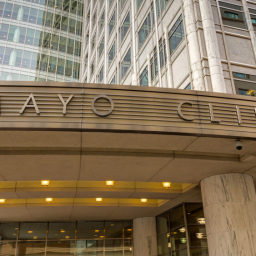For healthcare organizations fighting burnout, knowing where physician wellness needs support is crucial. As outlined by the National Academy of Medicine, assessment is one of six essential elements for organizational success when implementing wellness initiatives. Accurate assessments require trust, which, evidence suggests, requires anonymity.
Physician wellness can be hindered by fears of anonymity
In a 2020 interview with Champions of Wellness, Wendy Laine, director of wellness for the Emergency Physician Professional Association, specifically mentioned anonymity as a selling point.
“When we were looking at the different options for measurement tools… it was extremely important to us that anonymity was protected,” Laine said.
Even after selecting the Well-Being Index because of its protections of anonymity, Laine found that there was still work to be done and trust to be built, specifically through strategic communication to enhance staff buy-in.
“With just a couple of emails going out introducing the Well-Being Index, we’ve had about 50% of our people take the assessment. We’re still working on demonstrating to them that we have no access to their individual data,” said Laine.
The people of her organization are not alone.
[RELATED: Organizational Wellness Structure Roadmap – How to Set Up Your Teams For Success]
Anonymity is key when asking about sensitive issues
Providing a “wrong” answer on an assessment about personal matters can trigger thoughts of all kinds of consequences.
In a study on healthcare professionals’ views on unprofessional behavior in the workplace published January 2023, the authors note the increase in credibility anonymous responses have in subjective matters.
Another 2018 study examining the roles of anonymity and privacy in survey methodology found that “Subjects reported significantly higher mean comfort levels with anonymous modes than with non-anonymous modes.”
This was especially pronounced when differentiating between self-administered modes and interviewer-administered modes. Subjects were most comfortable overall with anonymous online surveys, and least comfortable with personal, video-recorded interviews.
[RELATED: How to Earn Trust and Foster Wellness By Eliminating Mental Health Stigma]
Fear of potential repercussions can lead to avoiding even tangentially related survey materials. During a 1981 drug use survey of 457 final-year med students, respondents were asked whether such surveys should be anonymous or onymous. 216 respondents answered with definite answers to the question, and of them, 72.2% favored anonymity. Relevant to our conversation, however, authors noted that, “Among those who provided ambiguous answers, or who did not respond on the issue of anonymity vs. onymity, there were significantly more drug users.”
Clearly, any approach to assessing physician wellness requires that their personal information be protected, in the interest of both privacy and accuracy.
Validated physician wellness tools include anonymity as a feature
As mentioned earlier, Laine made anonymity a priority when shopping around for assessment tools. She arrived at the Well-Being Index, and was able to make an honest argument to her staff because of its commitment to anonymity. This is what any validated tool for workplace assessment should do.
[RELATED: How To Get Buy-In for Physician Wellness Initiatives]
Burnout is an affliction with roots in personal and professional life. For accuracy’s sake, then, tools like The Well-Being Index must ask users potentially sensitive questions, which means any leading tool must make anonymity a priority feature.
The information users provide to the Well-Being Index, for example, is stored in secure servers with military-grade encryption. Reports with de-identified aggregate data are released back to the organization tracking physician wellness. These can be broken down to the unit level, but no further, meaning that no reports are compiled on individuals, and personal information cannot be released, provided to, or shared with anyone. If the sample size is too small, the data remains on their servers until a large enough group can be surveyed.
In the fight against burnout, where personal and professional domains intersect, prioritizing anonymity becomes indispensable for the privacy and precision essential in healthcare settings. The commitment to safeguarding personal information through advanced encryption in tools like the Well-Being Index signifies a responsible approach that balances the need for accurate assessments with the paramount importance of privacy.
As healthcare organizations navigate the complex landscape of physician wellness, the resounding conclusion is clear: anonymity is not merely a feature but a fundamental prerequisite for any validated tool seeking to comprehensively address burnout and promote the well-being of healthcare professionals.
















